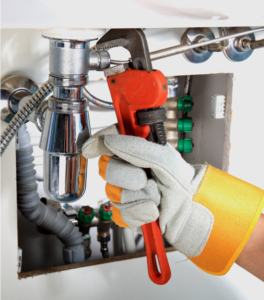Fixture Installation and Repair: An Exhaustive Manual in MEP Construction

In the world of modern construction, Fixture Installation and Repair in MEP Construction play a pivotal role in ensuring a building’s functionality, safety, and efficiency. From commercial complexes to residential projects, the demand for precise and high-quality installations has never been higher. In this blog, we’ll explore the importance of fixture installation and repair in the context of MEP construction, highlighting key services, techniques, and industry insights.
Understanding MEP Construction
MEP construction is the incorporation of Mechanical, Electrical, and Plumbing systems into a building. Such systems are the support structure of any infrastructure, providing the necessary heating, cooling, lighting, water supply, and waste management efficiently. A building could experience operational problems, increased maintenance expenses, and safety risks in the absence of appropriate MEP planning and implementation.
Some major aspects of MEP in engineering are :
Mechanical systems : HVAC (heating, ventilation, and air conditioning), pumps, and exhaust systems.
Electrical systems : Wiring, light, power supply, and backup systems.
Plumbing systems : Water supply lines, drainage, and sanitation fixtures.
Fixture installation and repair are a key part of these systems, helping ensure that all the parts work as designed.
Role of Fixture Installation in MEP Services
Fixtures are not mere decorations—integral functional elements of MEP services. Installation accurately determines performance, energy conservation, and compliance with safety standards.
A few typical fixtures in mechanical, electrical, and plumbing systems are :
Lighting fixtures and electrical panels
HVAC vents and thermostats
Bathroom and kitchen sinks, sanitaryware, and faucets
Industrial plumbing valves and pumps
In MEP civil engineering works, precise fixture locations and stable connections are important to prevent future failures, leaks, or electrical shock.
Fixture Repair : Preserving System Efficiency
Even well-installed fixtures can deteriorate over time. Routine maintenance and timely repair are necessary in order to maximize MEP system lifespan and operational reliability.
Typical repair operations involve :
Replacing old pipes or fittings in plumbing systems.
Repairing or replacing faulty electrical equipment.
Repairing HVAC system components such as filters, ducts, or thermostats.
Repairing leaks, corrosion, or misalignment problems in mechanical fixtures.
By incorporating fixture repair into regular MEP services, engineers can avoid expensive downtime and enhance building sustainability.
How MEP Professionals Install Fixtures
Professional MEP engineers in engineering teams adopt a structured approach for installation and repair:
Site Inspection: Assessing the project site to decide on optimal fixture layout.
Coordination of Design: Coordination with architects and civil engineers to facilitate smooth integration with the building structure.
Installation: Utilizing sophisticated tools and methods to safely install and connect fixtures.
Testing and Commissioning: Ensuring all systems run effectively and meet safety norms.
Maintenance Planning: Performing routine inspections and maintenance to extend the life of fixtures.
This systematic process guarantees all MEP construction features are efficient, safe, and reliable.
The Role of MEP Civil Engineering in Fixture Projects
MEP civil engineering involves incorporating traditional civil engineering competencies with contemporary MEP services expertise. Engineers should take structural stability, usability, and maintenance in the future into account while designing fixture installation.
Main factors to keep in mind are :
Load-bearing walls and ceilings’ ability to hold fixtures.
Correct piping, ducts, and electrical conduit routing.
Adherence to building regulations and safety standards.
Coordination with smart building technology to provide more efficiency.
By uniting civil engineering and MEP skills, professionals assure fixtures are functional and long-lasting.
Conclusion
Fixture installation and repair form the core of any MEP construction project’s success. Whether residential development, commercial complex, or industrial plant, properly installed and serviced fixtures improve safety, efficiency, and user comfort.
By relying on professional MEP services and combining expertise in mechanical, electrical & plumbing, businesses and homeowners can ensure their infrastructure operates smoothly for years to come.
Investing in skilled MEP engineers and regular maintenance not only prevents costly repairs but also adds long-term value to the property.


